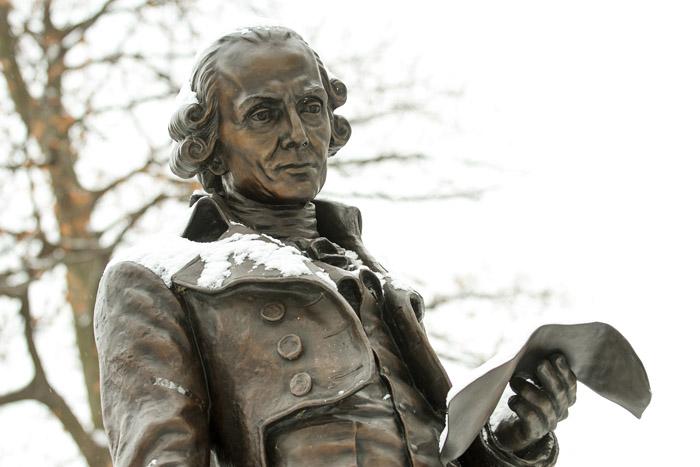The Republics of Benjamin Rush

Prospective students and families experience the Dickinson community firsthand through fall-visit programs.
by Christine Baksi
Scholars of Dickinson College founder Benjamin Rush will gather here March 20-22 for an academic conference that examines the prominent Philadelphia physician’s contributions to the politics and culture of the early American republic. Hosted by Dickinson, in partnership with the University of Pennsylvania’s McNeil Center for Early American Studies, The Republics of Benjamin Rush conference has attracted more than 20 Rush scholars from institutions throughout the U.S., U.K. and Canada, including Yale and Columbia universities and the University of Cambridge.
Organizers Jeremy Ball and Christopher Bilodeau, associate professors of history, say a series of presentations and roundtable discussions promise an honest examination of Rush’s intellectual contributions to American culture, placing him within the context of his time. “We have a group of scholars who will not only talk about Rush, the historical figure, but the memory of Rush, and a broader conversation about how people use the founding fathers and the founding period today,” says Bilodeau, adding that special emphasis will be placed on Rush’s concept of a useful education aimed at developing globally engaged citizens, which stands today as one of Dickinson’s core values.
A signer of the Declaration of Independence, Rush chartered Dickinson in 1783. In addition to being one of the leading physicians of his day, Rush played vital roles in the political and institutional development of the U.S., advocating for criminal-justice reform, new approaches to treat the mentally ill and the abolition of slavery among other causes. His interest in republican government also prompted his involvement in educational reform.
Learn more
Published March 17, 2014